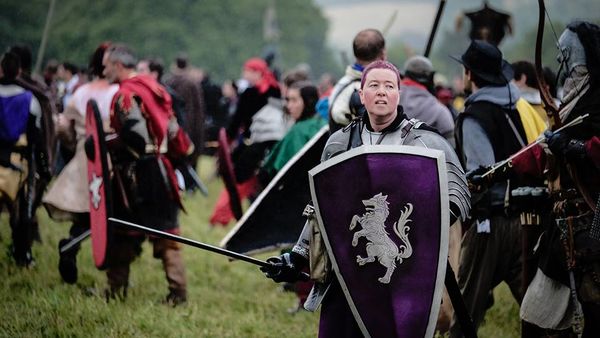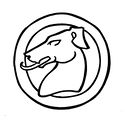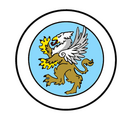Dawn military concerns
Overview
Dawn currently maintains four armies to fight in the Imperial wars but when Imperial fortunes have not permitted, that number has been reduced. Very few endeavours provide as many opportunities for glory as warfare. Drawn to glory as it is, it is unsurprising that Dawn prides itself on its martial traditions. Not all nobles deck themselves in a harness of plate, but every noble looks for opportunities to fight their foes toe-to-toe. Not for the Dawnish noble is the cowardly ambush or the subversive flank - they seek to face their opponents directly.
The rank and file soldiers are eager yeofolk, seeking opportunities for glory. They are led by the most capable nobles available who share their soldiers ambitions. Few Dawnish generals will lead from the rear. While there is some glory in a well-planned battle, little compares to the glory of a lord or lady who leads their troops to victory. As such most yeofolk have an abiding respect for their military leaders, born of shared ambitions and shared dangers.
Shields are highly popular in Dawn, as much for their decoration as their ability to protect. Heater shields are the favoured shape, decorated with personal or household devices. Missile weapons are rare, and regarded with some suspicion. Despite their obvious uses, it's difficult to see anything glorious in shooting an enemy at thirty paces. Archery is seen as a fitting contest of skill, rather than a glorious weapon of war.
Dawnish of any gender in the active pursuit of glory, particularly those risking their lives to do so, are often referred to simply as knights. Knightly behaviour on the battlefield is expected of nobles and yeofolk alike. Those who identify themselves as knights are stating openly that they will act gloriously. The military strength of a noble house in battle is usually expressed as the number of knights they can field.
Those engaged upon a Test of Mettle, seeking to prove their glory, are called knights-errant. The term is used equally to describe anyone looking to prove themselves by seeking danger and adventure. Most often they are the children of noble houses, but groups of yeofolk who wish to attract the attention of the noble houses may also become knights-errant.
Some knights-errant enjoy the life of high adventure so much that they continue the lifestyle after passing their Test of Mettle, declining the political life of a noble house. Questing knights, as they are usually known, usually form a tight-knit group with other, similarly minded knights, and often dedicate themselves to some great quest or higher cause that they know can never be completed. If such groups are perpetuated through the generations as newly ennobled knights join the ranks to replace losses, they usually become a recognized knightly order. Such groups are usually distinctive, perhaps with a unique code of honour that every member must swear or an eternal patron to whom they swear loyalty.
Bands of knights-errant and questing knights usually include a troubadour where possible, to inspire them to glory and to record their accomplishments for posterity.
Imperial Armies
Dawn currently fields four armies: the Golden Sun, the Eastern Sky, the Gryphon's Pride, and the Lions of Adelmar. Since the Winter Solstice 382YE, no Dawnish general can issue their army with an order to Give Ground or make a Cautious Advance thanks to a mandate enacted by Pelleas Thorn and supported by the Dawnish Assembly committing the soldiers of Dawn to seek victory and glory on the battlefield whatever the cost.
The Golden Sun
When people think of Dawn their first thought is usually the nation's knights, arrayed in mail, swords gleaming, ready for battle. As befits a nation with such an emphasis on heavy armour, the soldiers who fight under the Golden Sun banner are especially resilient, known for their implacable, barely resistible, advances through enemy territory. There is some friendly rivalry between soldiers of the Golden Sun and the Hounds of Glory, and when their soldiers meet they often engage in contests of strength and martial might.
Towards the end of 382YE, inspired by the recent victories and urged to seek glory through service to Dawn, thousands more yeofolk requested to join the Dawnish armies. The Golden Sun, one of the oldest armies of Dawn, was their first choice, probably because its general is sometimes referred to as the First General of Dawn. The Imperial Senate approved of this course of action, and the Golden Sun is now on track to become the first large army in Dawnish history. .
The first Dawnish general leads the Golden Sun army, and is appointed (or re-appointed) at the Summer Solstice each year.
The Hounds of Glory (Destroyed)
The Hounds of Glory very publicly strove to be the most glorious army in the Empire; while few were so gauche as to say it openly that came with the clear understanding of every Hound that that meant they were the greatest army in the Empire. The soldiers who fought beneath the banners of the Hounds of Glory prided themselves on their unstoppable nature since the army was founded. The core of the army was battle-hardened knights arrayed in gleaming armour, their shields proudly displaying their house and personal sigils. They were supported by cadres of archers and witches, but what long made them unique in the Empire was the Courage and the conviction that they drew from their surety of purpose and their commitment to glory above all other things. In battle they went where the glory was found, where the fighting was thickest, where legends were written.
Driven by the need to prove themselves first among equals, and capitalising on the enthusiasm generated by the Dawnish victories, they recruited knights from all over Dawn and challenged each to prove their glory in ever more demanding ways. Few could have doubted their absolute commitment to their ideals, and their indomitable spirit made them a formidable force on the battlefield capable of truly remarkable feats
There was some friendly rivalry between the Hounds of Glory and the Golden Sun, and when their soldiers met they would often engage in contests of strength and martial might.
The Eastern Sky
Fighting beneath an emerald green banner bearing the golden image of the rising sun, before the Gryphon's Pride was reformed the Eastern Sky was the youngest of the Dawnish armies. It has a long and proud tradition of defending the Dawnish heartlands from orcish aggression. They receive regular supplies from the people of Dawn; both civilians and soldiers alike possess a great deal of pride in the Eastern Sky and the families and descendants of those who have fought beneath the banner are fierce in their support. This means that the Eastern Sky can recover quickly even while on campaign. Many of the soldiers of the Eastern Sky have a particular hatred for the Druj barbarians; traditionally they are first to see the carnage the cruel orcs leave behind when they manage to gain access to an Imperial village.
The second Dawnish general leads the Eastern Sky, and is appointed (or re-appointed) at the Autumn Equinox each year.
The Gryphon's Pride
The first army to bear this name of the Gryphon's Pride met a tragic end during a doomed attempt to capture the Barrens in 276YE. In 378YE, the Imperial Senate commissioned the restoration of the army. It was completed shortly before the Spring Equinox 380YE. The core of the army is made up of knights descended from the soldiers of the first army, including almost the entire fighting force of House Lionsgate, but almost every noble house in Dawn has provided stout yeofolk, noble knights, and war witches to take up arms under its banner. It is committed to glorious conquest of new territory for the people of Dawn.
The third Dawnish general leads the Gryphon's Pride army, and is appointed (or re-appointed) at the Spring Equinox each year.
The Lions of Adelmar
The Lions of Adelmar were raised by Senate motion during the Summer Solstice 385YE. Mustering completed shortly before the Spring Equinox 387YE. Éamon Ashenmourn de Cordraco, senator for Astolat, named the army after the exemplar Adelmar the Lion and endorsed the army's focus on love.
The fourth Dawnish general leads the Lions of Adelmar army, and is appointed (or re-appointed) at the Winter Solstice each year.
Further Reading
Core Brief
Additional Information





